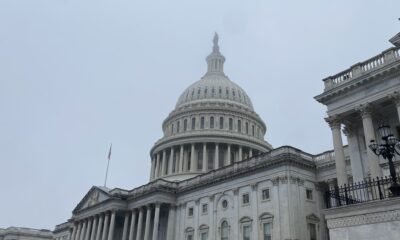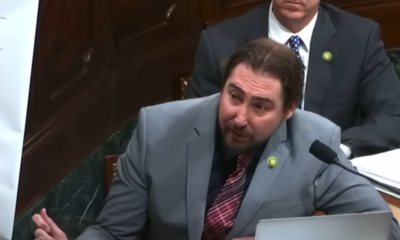HB 2145
Rep. Bliss’s Groundbreaking Sanitarian Workforce Bill Becomes Law

By Jonathan Eberle |
Arizona has recently passed a significant law aimed at enhancing the state’s environmental health workforce and addressing the persistent issue of foodborne illnesses. The legislation, known as HB 2145, was championed by Representative Selina Bliss (R-LD1) and received unanimous support in the legislature before being signed into law by Governor Katie Hobbs.
This new law modifies experience requirements and clarifies educational standards for individuals aspiring to become registered sanitarians in Arizona. The updated criteria now require aspiring sanitarians to have three years of experience as a sanitarian aide in a public health agency or a related private sector role, a reduction from the previous five-year requirement. Alternatively, candidates can qualify with three years of full-time military service in environmental health or by completing 30 semester hours in relevant subjects, including 22 hours in natural sciences.
Representative Bliss, reflecting on the impact of foodborne illnesses, emphasized the urgency of this legislation. “I have had food poisoning five times in my life, so I can testify that this is important! This law addresses our workforce shortage to protect the public from food-borne illness,” she noted on social media.
The changes aim to broaden the pool of eligible candidates while ensuring that robust standards remain in place for public health professionals. Sanitarians are pivotal in safeguarding public health, undertaking environmental health investigations, and ensuring compliance with health regulations.
The impetus for this reform stemmed from challenges faced by agencies throughout Arizona in recruiting qualified personnel, particularly in rural areas and during health emergencies. Proponents of HB 2145 argued that modernizing the framework would help address workforce shortages without sacrificing safety standards.
Staffing shortages in environmental health are a nationwide concern, with many states grappling to fill essential roles that prevent outbreaks and ensure food safety. The COVID-19 pandemic exacerbated these challenges, drawing increased focus on the need to bolster public health infrastructure.
The enactment of HB 2145 represents a bipartisan effort to enhance Arizona’s public health capabilities. The law is set to take effect later this year, aiming to strengthen the state’s readiness to combat foodborne diseases.
Jonathan Eberle is a reporter for AZ Free News. You can send him news tips using this link.


















